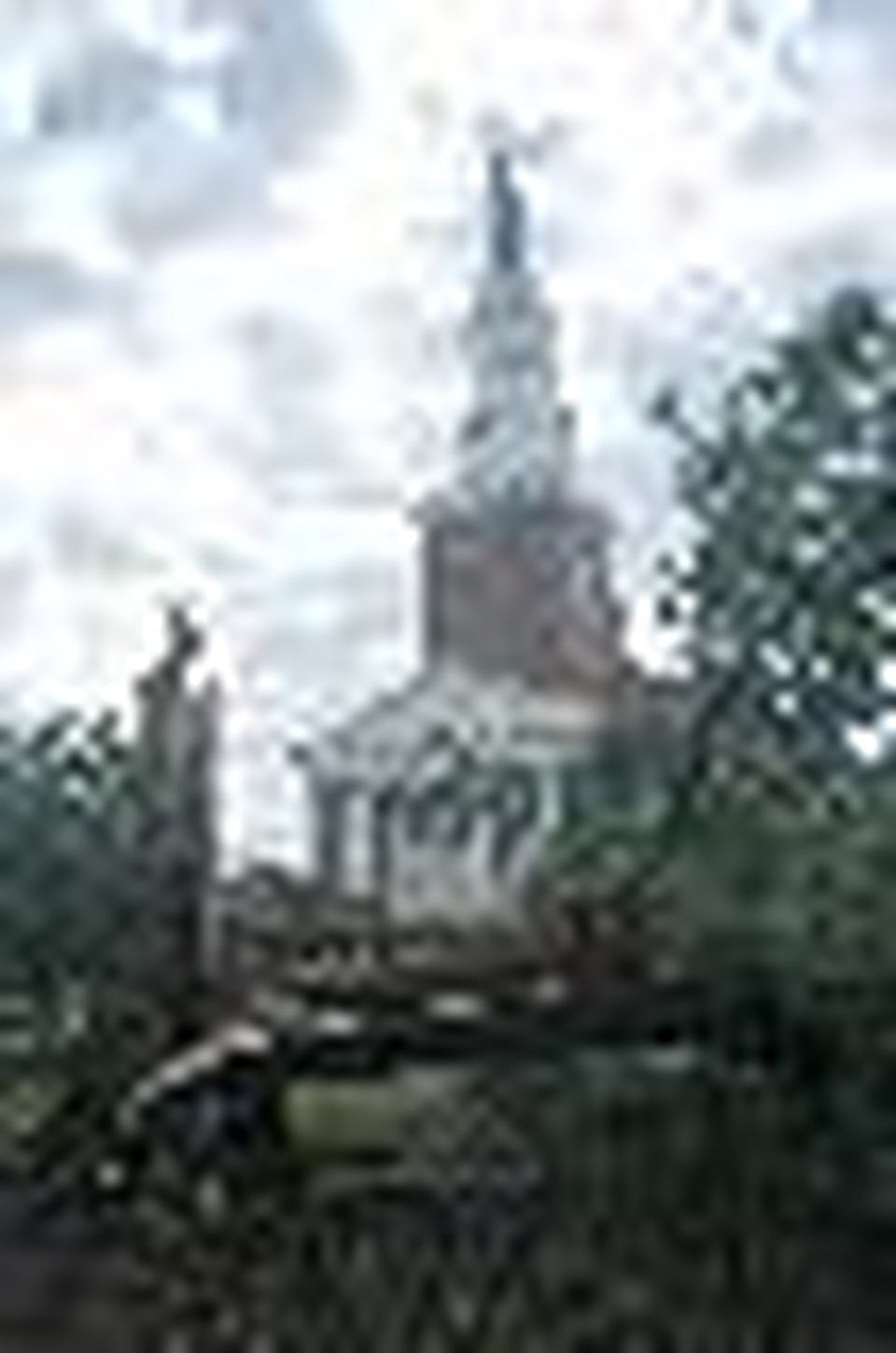Southern Baptists Help with Isabel Relief Efforts

Members of the North Carolina Disaster Relief Region 7 mobile kitchen unit are familiar with being first on the scene, having arrived at the Pentagon less than 24 hours after the Sept. 11, 2001, terrorist attack to serve relief workers. This time, as the fringes of Hurricane Isabel raged outside, volunteers waited at the offices of the Baptist State Convention of North Carolina Sept. 18 after traveling from the northwestern part of the state earlier in the day.
They joined other Southern Baptist Disaster Relief units in staging close to the affected areas so they could set up that much faster when the weather cleared.
"We're sort of the first wave of Christ's arms reaching out to people," said Skip Greene, a member of First Baptist Church of Boone, N.C., and leader of the unit. "We're there to help them primarily by giving them a hot meal, to help them through this initial shock of what's happening in their lives. And behind us come people that actually help put a roof on their house, or get the mud out."
Also staging at the convention offices overnight was the state's Region 9 mobile kitchen unit from the Asheville area, along with two cleanup and recovery teams. The units left early Sept. 19 to another staging area at Williamston, N.C., where they would find out their final destination.
Greene said the kitchen units usually go in and immediately start setting up to prepare thousands of meals daily for disaster victims.
"I anticipate tomorrow we'll probably go out and set up a serving line and serve people right in front of us," he said, noting that most of the food often is prepared in bulk for distribution by the American Red Cross or Salvation Army.
"Initially a lot of the time people come to us when they find out what we're doing," he said.
The routine at the staging area was more relaxed than they would likely face after deployment, but much of what makes their work so effective is the advance planning, with assignments for setup, cooking, cleaning, serving and other roles.
Many have been doing this sort of thing for many years.
Robert Stroup, a member of First Baptist Church of Spruce Pine, N.C., said he first became involved after responding to Hurricane Hugo in 1989. He since has been a regular, serving in South Florida after Hurricane Andrew and for more disaster areas than he can count since.
"It's like drinking Coca-Cola: You drink it one time and you're hooked on it," he said. "I just enjoy loving people, trying to help people."
He described victims of Hurricane Andrew forming long lines early in the morning in a devastated area just for a hot breakfast. "All those people wanted was somebody to love them, because they didn't have anything else," he said. "I didn't have anything I could give them. I couldn't give them a shirt. I couldn't give them a couch. But I could love them. And that's the first and greatest commandment."
Pearl Setzer of Granite Falls, a member of Friendship Baptist Church in Hudson, said she first became a Disaster Relief volunteer in 1990. As she prepared a devotional that she was scheduled to share with her group on Saturday, she said that every member of the team is trained to do every job.
"As we learned in missions, you just stay flexible," she said. "... You do what you're asked. Now I love the serving line because I just love to meet the people -- but I do the dishes a lot, or stir the food."
For Charlie Fox -- who was just appointed head dishwasher for the deployment -- involvement in Disaster Relief was an extension of his love for other kinds of volunteer missions, a passion he shares with others in the unit. It is a commitment that led him to change careers in the late '80s to become an insurance agent -- just so he would have the flexibility to participate in missions projects.
"If you look around this room, most of us are either retired or they're self-employed," he said. "It helps to be your own boss."
It is his love for serving others in Christ's name, he said, that makes it worthwhile.
"I hate to say that you have a good time when you go out for a disaster, but the fellowship is really good," he said. "It's very fulfilling. You feel like you're doing something worthwhile."
Visit Baptist Press at www.bpnews.net
Originally published September 19, 2003.




